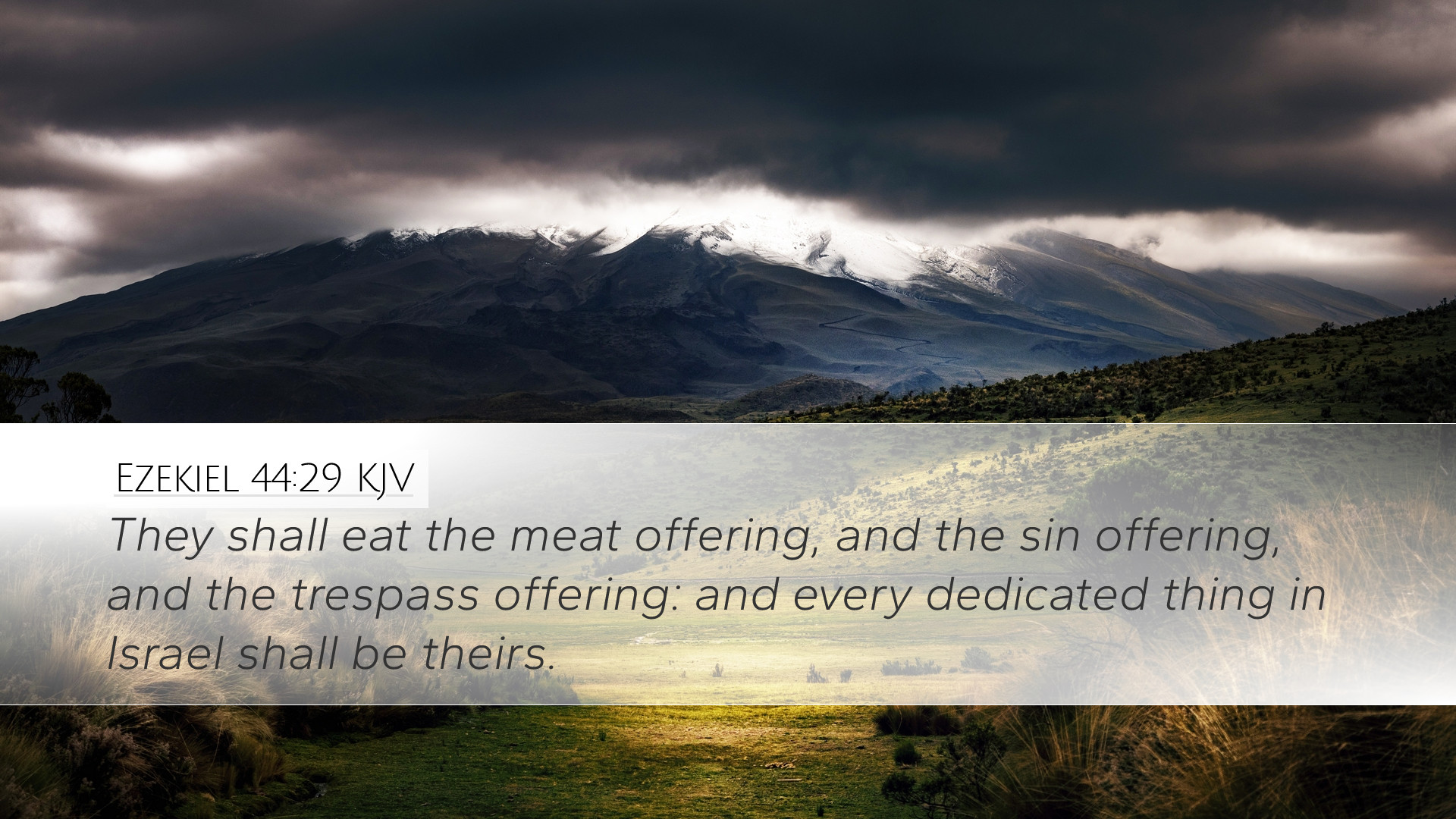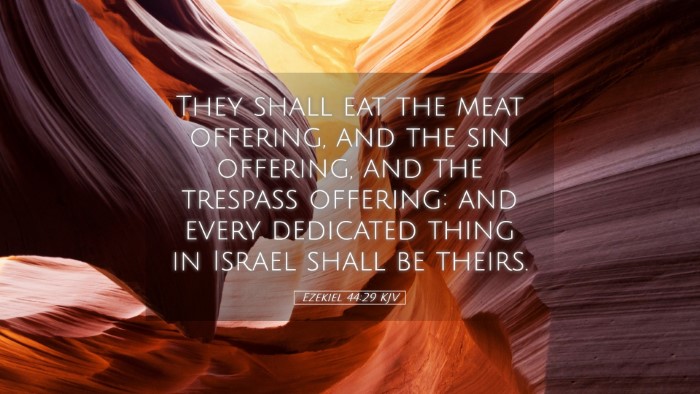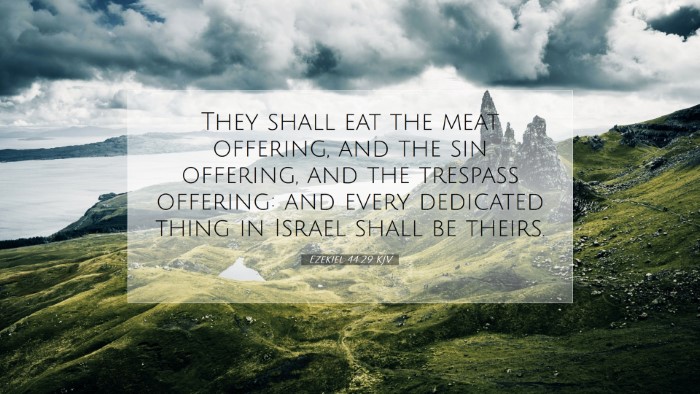Ezekiel 44:29 - Commentary Summary
Verse: "They shall eat the meat offering, and the sin offering, and the trespass offering; and every dedicated thing in Israel shall be theirs."
Introduction
Ezekiel 44:29 is a significant verse within the context of the temple service and the priestly duties outlined in the book of Ezekiel. This passage emphasizes the provisions made for the priests, highlighting the sacrificial system's role in the spiritual life of Israel. Commentators such as Matthew Henry, Albert Barnes, and Adam Clarke provide rich insights into the theological implications and practical applications of this verse.
The Priestly Provision
The verse identifies the categories of offerings that the priests are entitled to consume: the meat offering, the sin offering, and the trespass offering, as well as every dedicated thing in Israel. This divine prescription underscores the necessity of provision for those who dedicate their lives to the service of God.
- Matthew Henry: He notes that the priests' sustenance comes from the offerings as a form of acknowledgment of their unique role in mediating between God and the people. Their food symbolizes the spiritual nourishment provided through their priestly duties.
- Albert Barnes: Barnes emphasizes the holiness of these offerings. The idea that they are "holy things" reflects their special status. The consumption of these offerings by the priests signifies their vicarious role in leading the people towards holiness and atonement.
- Adam Clarke: Clarke distinguishes the types of offerings and their significance in atonement and worship, noting that they are essential for maintaining a right relationship with God and advancing personal and communal righteousness.
Spiritual Implications
The delineation of what the priests are to consume can also be seen as a foreshadowing of the New Covenant, where spiritual nourishment surpasses physical sustenance. The sacrifice of Christ ultimately fulfills these types and shadows.
- Matthew Henry: He draws parallels between the earthly priesthood and Christ’s eternal priesthood. Just as the priests received sustenance from the offerings, believers now partake in the body and blood of Christ as their spiritual nourishment.
- Albert Barnes: Barnes points out that the offerings symbolize the grace bestowed upon God’s people, reflecting how the church today is also supported through spiritual gifts and the gospel message. The sharing of these "holy things" represents community and shared grace.
- Adam Clarke: Clarke elaborates on the communal aspect of shared offerings, suggesting that the priesthood, ingesting these offerings, symbolizes the unity of the covenanted community under God’s provision and grace.
Historical Context and Application
Understanding the historical context of this verse within Ezekiel’s prophetic vision shows the transition of the Israelites back to worship in the temple post-exile. The instructions concerning the offerings served not only a ritualistic purpose but were significant in rebuilding the community and restoring Israel’s identity as God’s chosen people.
- Matthew Henry: Henry highlights the importance of maintaining proper worship practices as crucial to restoring a fallen nation, delineating how adherence to God's commands is foundational for societal and spiritual health.
- Albert Barnes: He notes that the re-established practices serve as a reminder to the returning exiles of their covenant relationship with God. The provision for the priests becomes a model for humility and divine reliance that each Israelite must embrace.
- Adam Clarke: Clarke emphasizes the need for the leaders to exemplify righteousness, stressing that their consumption of offerings must be coupled with genuine dedication to God, thus inspiring the general populace to adhere to holiness.
Conclusion
Ezekiel 44:29 encapsulates the essence of priestly duty, the importance of divine provision, and the role of sacrificial offerings in fostering a genuine relationship with God. The rich insights from public domain commentaries by Henry, Barnes, and Clarke provide a multi-faceted understanding that is significant for pastors, students, theologians, and Bible scholars alike. This verse not only speaks to the historical context of Israel but also invites contemporary believers to contemplate the ongoing sacrificial nature of Christ and its implications for spiritual nourishment today.


